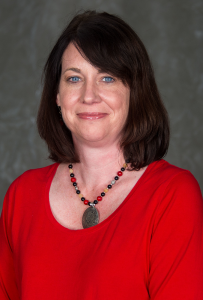
Professor Jennifer Woolard will head up Project Cohort.
Georgetown University Associate Professor Jennifer Woolard will work on a three-year pilot program titled Project Cohort, which was created in a partnership between Project Rebirth, Georgetown University, Outward Bound for Veterans and Sierra Club Military Outdoors. The program, which aims to provide veterans with mental healthcare, will launch by the summer of 2015.
Woolard, a professor in Georgetown’s Psychology Department, joined Project Rebirth’s organization after attending a screening of the trailer for the film “Project Rebirth,” which was produced by Georgetown alumnus Jim Whitaker (CAS ’90), who also started the eponymous organization. The documentary explores how the nation recovered after the events of Sept. 11, 2001.
“The Project Rebirth organization was interested in thinking about how the film and related projects could be used to promote resilience for first responders, veterans, and other communities experiencing trauma and disaster. I’m trained as a community psychologist and the idea intrigued me, so I began talking with folks. This began about eight years ago,” Woolard wrote in an email to The Hoya.The pilot program aims to provide veterans with alternative treatment options. Groups will spend time in the outdoors with peers and engage in experiential learning through evidence-based therapies. The program hopes to be the first treatment option for veterans when they return home.
“Project Cohort will produce measurable outcomes regarding the success of our participating veterans in entering and sticking with a mental health care program,” Woolard wrote. “The Project Cohort model is easily replicated and very adaptable and will be shared with [veterans] around the country.”
Although there are currently options for veterans to enter community support groups and job training programs, there is a shortage of options to ensure that veterans are psychologically and emotionally healthy, according to Woolard.
Professor Woolard has done extensive research on post-traumatic shock disorder and the impact of group therapy, and she hopes that Project Cohort will provide a needed change to current group therapy methods.
“Veteran Associations around the country use the group therapy model for veterans in need of care — the Project Cohort program will make the existing model work better for veterans by changing those groups from a collection of strangers into a supportive, emotionally bonded unit of soldiers who have a real commitment to helping each other face life’s challenges,” Woolard wrote.
Project Cohort will be receiving support from several organizations and partners on Georgetown’s campus. Currently, University President John J. DeGioia is a member of the Project Rebirth Board and the Georgetown University Veterans’ Office, and he is eager to work with Professor Woolard’s team.
“The key is figuring is how you combine the strengths of these individual groups with the resources of the national organizations like Department of Veteran Affairs and Georgetown university,” Georgetown Veterans Office Coordinator David Shearman said. “The key is figuring is how you combine the strengths of these. If it can come together, you are going to see really great things start to happen and find new solutions to existing problems. I think it’s very exciting because it’s new and it is being run really well.”
Shearman said that the study was an especially appropriate undertaking for Georgetown since St. Ignatius, the founder of the Jesuits, was himself a wounded veteran.
“It was when [Ignatius] was convalescing and recovering, he found the Society of Jesus,” Shearman said. “Just think about his path and his progression in relation to Georgetown University through Project Cohort and the veterans on campus. I think there are some really strong connections to be made with our identity as a Jesuit university and what we are doing day to day to help student veterans.”
Student veteran Jimmy Sutton (COL ’15), who served for seven years in the U.S. Army, said that he believes the program will have a strong effect on suffering veterans.
“I think that Project Cohort will prove to be very insightful for those studying PTSD and it very closely fits with the Georgetown value of cura personalis,” Sutton wrote in an email to The Hoya. “I am glad that Professor Woolard is taking a different approach in studying issues like PTSD [which] are very complex; its effects range from person to person. Sometimes providers only view PTSD as a mental health illness rather than a deficit of social interaction but the effects can look similar.”
Sutton said that he appreciates the new angle Woolard is taking on the study of PTSD, and he thinks it may lead to new breakthroughs.
“While serving in the Army for seven years, I created some very close relationships and was accustomed to a very strong camaraderie. Since separating from active duty, that same sense of community has been difficult to replicate,” Sutton said. “Studying the effects of social support systems may demystify PTSD, decrease the negative stigma associated with it and lead to better treatment.”














